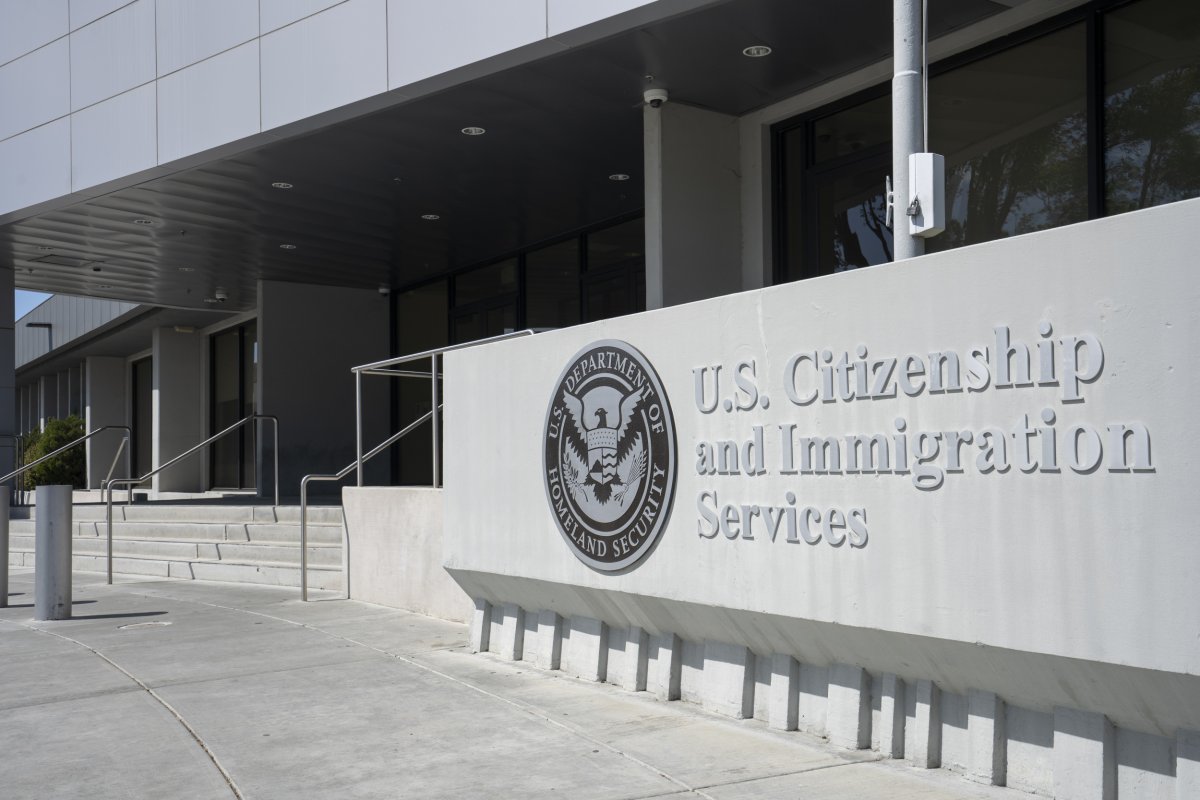
Immigrants in the United States illegally, or without documentation, could face deportation proceedings even as they seek family-based legal status, new government policy has suggested.
In an update to its policy manual late last week, the U.S. Citizenship and Immigration Service (USCIS) added a new section which directly states that the agency can now issue immigration court orders for those seeking legal status through a family member.
Newsweek reached out to USCIS for further comment via email Wednesday morning.
Why It Matters
The Trump administration has made it clear that it is seeking to deport millions of immigrants who either entered the U.S. illegally or have broken immigration laws in some way, such as overstaying a visa. The policy shift on family-based petitions could signal that harder stance is also going to apply to those at least seeking to be in the country legally.

Getty Images
What To Know
USCIS updated its policies, as is common, on August 1, 2025, including alterations to a section on “Adjudication of Family-Based Petitions.” These applications are specific to undocumented immigrants who either marry or are related to a U.S. citizen or legal permanent resident.
Immigrants and the petitioner, or sponsor, are often required to have an interview with an immigration officer and have to go through rigorous application forms to meet the criteria for legal status to be granted.
That status is given when USCIS can confirm that the individuals involved are relatives or spouses, and that they have provided enough evidence to do this.
In the August 1 update, a new paragraph on “Removable Aliens” was added, outlining that a so-called Notice to Appear (NTA) for court hearing could be issued if USCIS determines an immigrant is deportable—i.e. they would be placed in removal proceedings rather than have their status granted.
The policy reads: “If USCIS determines the alien beneficiary is removable and amenable to removal from the United States USCIS may issue a Notice to Appear (NTA) placing the beneficiary in removal proceedings. Petitioners and alien beneficiaries should be aware that a family-based petition accords no immigration status nor does it bar removal.”
While an immigrant may be able to challenge such a ruling, it can take many months for that challenge to be heard. For some immigrants without legal status, this would likely come after years of waiting to adjust their status anyway.
Since January 1, 2025, USCIS has received 269,864 petitions for an “Alien Relative,” or form I-130, with 162,116 approvals and 21,665 denials. Overall, there are almost 2.4 million pending cases.
The agency, which determines immigration benefits within the U.S. under the Department of Homeland Security (DHS), has become increasingly involved in immigration enforcement under the Trump administration. The argument for this is that increased vetting and cross-agency cooperation is necessary to avoid immigration fraud.
What People Are Saying
USCIS in a memo on NTAs in February 2025: “USCIS is updating its NTA policy to address national security, public safety, and the overall integrity of our immigration system through enforcement of the INA against inadmissible and deportable aliens. Accordingly, USCIS will no longer exempt classes or categories of removable aliens from potential enforcement, which includes referring cases to ICE and issuance of NTAs.”
What’s Next
The policy change is effective immediately, but with a backlog in cases of over 2 million, it may take some time for USCIS to begin issuing NTAs and for data to become available on how many immigrants are being placed into removal proceedings.




